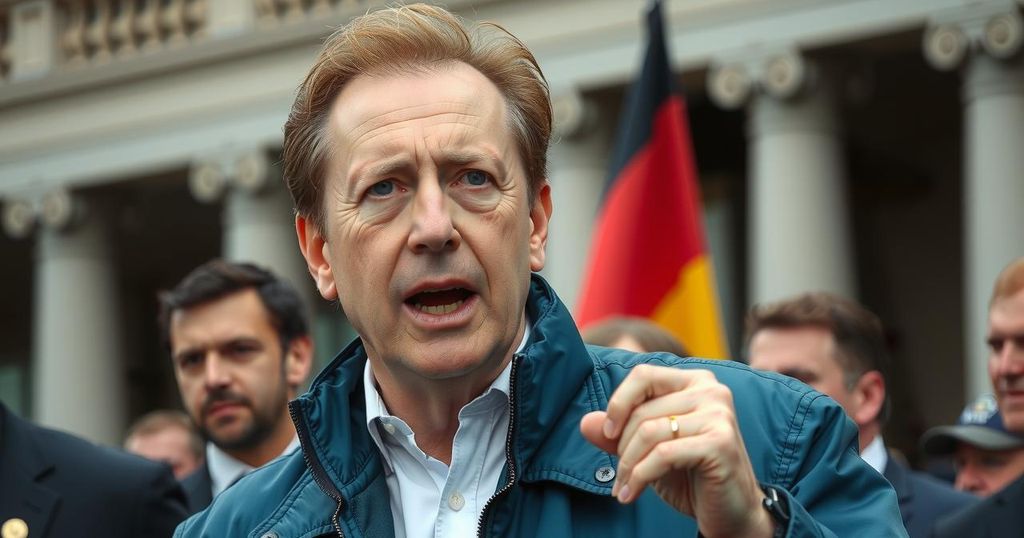Elon Musk’s Controversial Endorsement of Germany’s AfD Party

On December 30, 2024, Elon Musk expressed his support for the far-right AfD party, calling it Germany’s “last spark of hope.” His op-ed in Welt am Sonntag drew sharp criticism from various political figures, who viewed it as interference in democratic processes. The piece raised questions about media integrity and the appropriateness of endorsements in the context of upcoming elections, amid growing concerns about the normalization of far-right ideology in Germany.
On December 30, 2024, Elon Musk articulated his support for the far-right Alternative for Germany (AfD) party in an op-ed published by Welt am Sonntag. Musk labeled the AfD as “the last spark of hope for the country” that is facing impending economic and cultural decline, asserting that its policies could revitalize the economy and stabilize immigration. He dismissed the party’s extremism label, arguing that the personal background of its leader, Alice Weidel, contradicts such perceptions.
The article, while framed as an opinion piece, led to significant backlash within the German media, culminating in protests from editorial staff and the resignation of a senior editor at Welt am Sonntag. Critics, including Friedrich Merz and Lars Klingbeil, condemned Musk’s interference in German politics, likening him to autocrats who seek to disrupt democratic processes. Amid the rising polls for the AfD, which stands at 20%, Musk’s remarks have reignited debates over the role of the press concerning political endorsements and electioneering practices in Germany.
While freedom of expression and press are constitutionally protected, the appropriateness of party endorsements remains contentious. Historical references showed that while some publications have endorsed parties, main media outlets uphold a standard of impartiality. The controversial publication of Musk’s commentary in the conservative Welt newspaper raised questions about media integrity and the potential normalization of populist ideologies.
Elon Musk’s commentary represents a significant moment in the intersection of tech influence and political discourse. Germany’s political landscape is currently witnessing the ascendance of the AfD, raising concerns among traditional political parties about safeguarding democratic norms. Musk, known for his substantial global following, is perceived not only as a businessman but also as an emerging player in political advocacy, which raises implications for electoral dynamics. Historical context suggests that while German media maintain strict impartiality, they have occasionally engaged in political endorsements, prompting debates about media’s role in shaping public opinion and electoral outcomes.
Musk’s support for the AfD underscores the complexities of political engagement by global figures within national contexts. The incident reflects broader issues regarding media integrity and political influence in the evolving landscape of German democracy. Opponents fear that Musk’s endorsement could lend legitimacy to the AfD, thereby accelerating the party’s acceptance within mainstream discourse. As Germany approaches critical elections, the implications of such interventions necessitate careful consideration of media responsibilities and the intersection of technology and politics.
Original Source: www.dw.com







